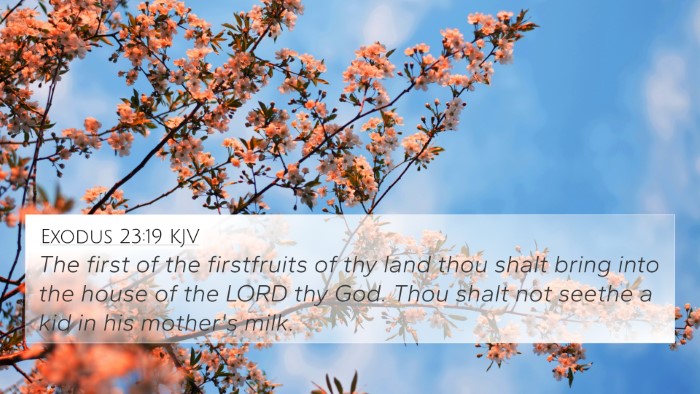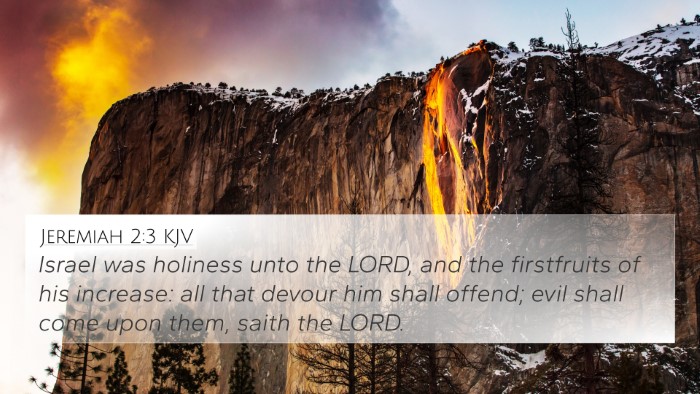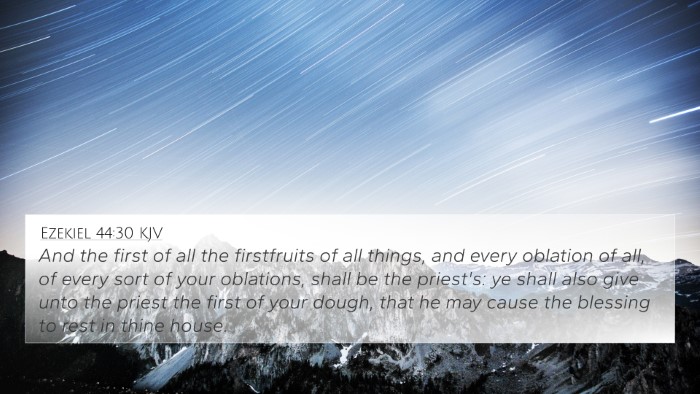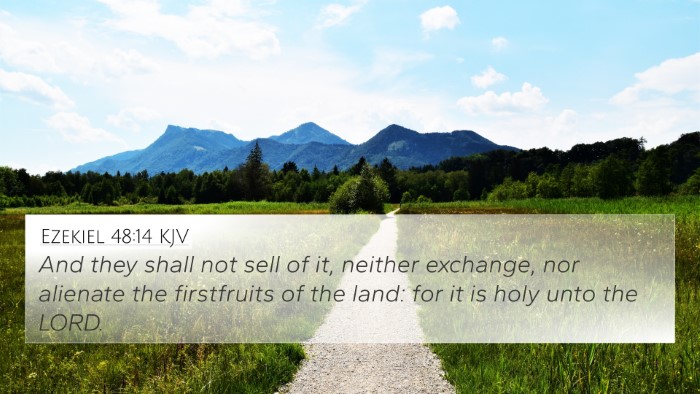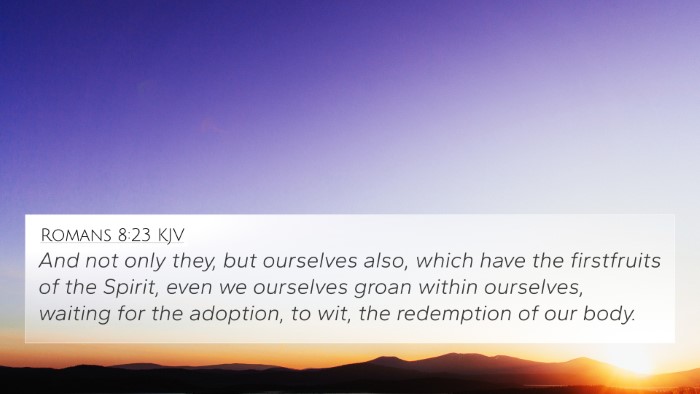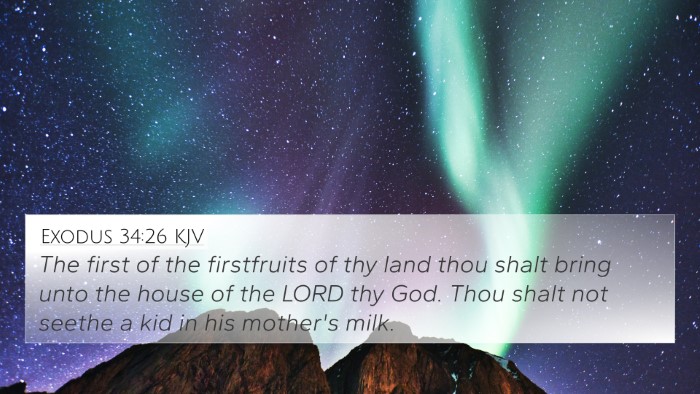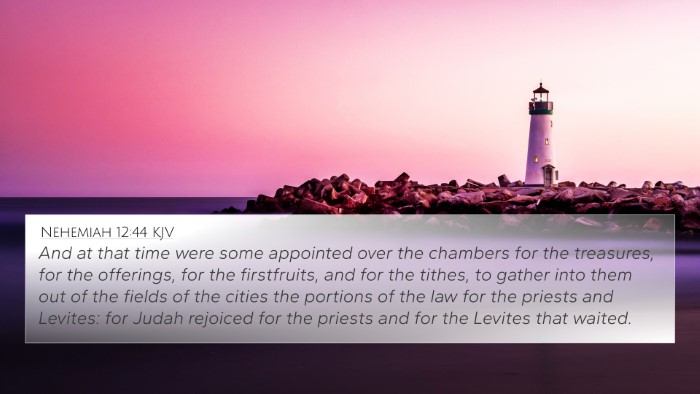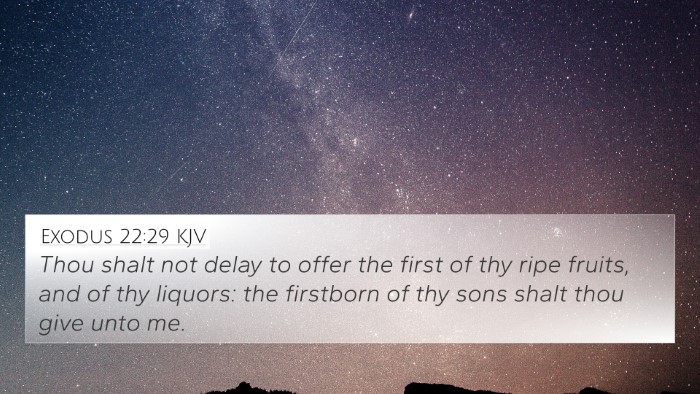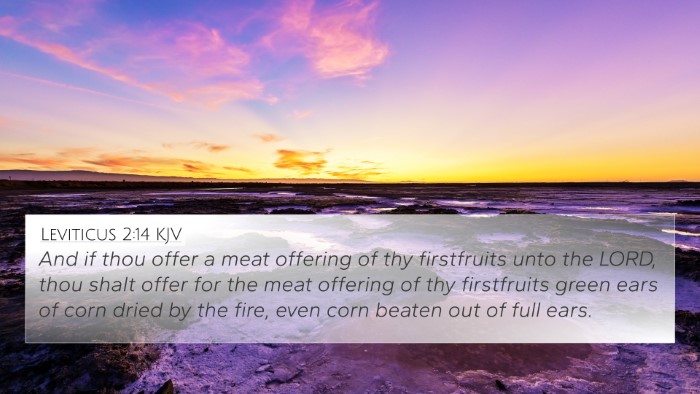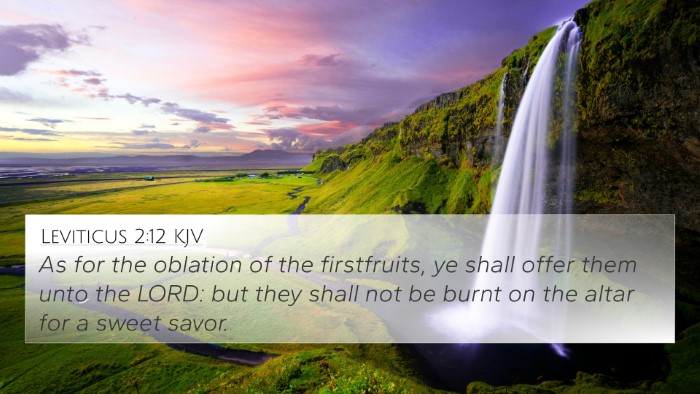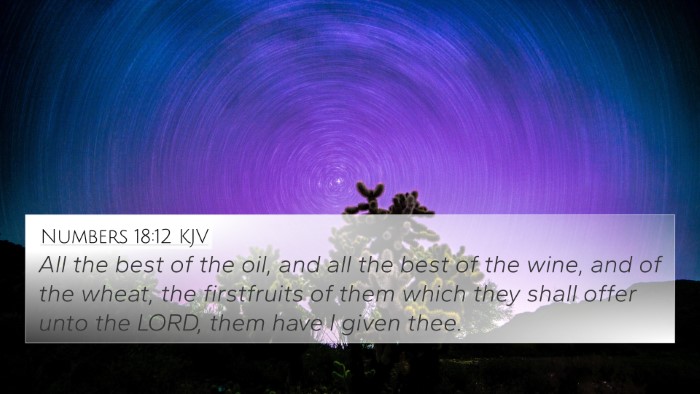Meaning and Interpretation of Deuteronomy 26:2
Deuteronomy 26:2 states: "that you shall take some of the first of all the fruit of the ground, which you shall bring in from your land that the LORD your God is giving you…" This verse forms a crucial part of the Mosaic Law, capturing the essence of gratitude and acknowledgment of God's provision as the Israelites prepare to enter the Promised Land. It underscores the importance of recognizing God's gifts and giving back to Him as a form of worship.
Summarized Insights from Public Domain Commentaries
Multiple commentaries from respected theologians provide a deeper understanding of this verse:
- Matthew Henry: He emphasizes the notion of gratitude in giving the first fruits. It signifies a recognition of God as the source of all provision and encourages believers to honor God with their possessions. This act of offering is not merely a ritual, but a heartfelt acknowledgment of God’s blessings and sovereignty over the land.
- Albert Barnes: Barnes draws attention to the specific requirement of offering the first fruits, thereby highlighting its significance. This act is not just a token gesture; it reflects the first and best of what one possesses. It is a principle that suggests prioritizing God in all aspects of life, particularly in the stewardship of resources. He stresses the communal aspect of this offering, essentially tying it to the collective identity of the Israelite community as God's chosen people.
- Adam Clarke: Clarke further elaborates on the symbolism of first fruits within the wider biblical narrative. He raises points about how this practice foreshadows greater spiritual truths. He links this to the teachings of Christ, underlining the ongoing relevance of these themes in New Testament teachings, where believers are called to give their best to God.
Exploring the Thematic Connections
The verse serves as a foundational text for understanding the practice of giving in a spiritual context. Here, we explore some key themes and cross-references that tie this verse with broader biblical concepts:
Bible Verse Cross-References
- Exodus 23:19: "The best of the first fruits of your ground you shall bring into the house of the LORD your God." This verse underlines the continuity of giving the first fruits as a law established for the Israelites.
- Leviticus 23:10: "When you come into the land which I give to you, and reap its harvest, then you shall bring a sheaf of the first fruits of your harvest to the priest." This verse reinforces the importance of bringing forward the first fruits as central to worship.
- Proverbs 3:9-10: "Honor the LORD with your possessions, and with the first fruits of all your increase; so your barns will be filled with plenty, and your vats will overflow with new wine." This passage connects giving the first fruits with divine blessings.
- Hebrews 11:4: "By faith Abel offered to God a more excellent sacrifice than Cain, through which he obtained witness that he was righteous…" This highlights the principle of giving one's best as an expression of faith.
- James 1:17: "Every good gift and every perfect gift is from above, and comes down from the Father of lights." This New Testament verse reminds believers that all good things, echoing the purpose behind giving the first fruits, come from God.
- 1 Corinthians 15:20: "But now Christ is risen from the dead, and has become the first fruits of those who have fallen asleep." This shows a continuation of the theme, linking physical first fruits to spiritual significance in Christ.
- Romans 11:16: "For if the first fruit is holy, the lump is also holy; and if the root is holy, so are the branches." This verse connects the offering of first fruits to the sanctity of all that follows.
Understanding the Role of First Fruits in Biblical Theology
The inclusion of the concept of first fruits extends beyond mere agricultural practices; it establishes a theological framework that encourages believers to orient their lives around the acknowledgment of God's sovereignty and blessings. This theological interpretation invites a comparative Bible verse analysis where other verses support the notion of prioritizing God in one’s stewardship of resources.
Connections Between Bible Verses
By linking Deuteronomy 26:2 with various other scriptures, we can identify thematic connections that offer a richer understanding of scriptural teachings. Significant connections can encompass:
- Thematic Bible Verse Connections: The principle of offering back to God what is first and best flows through both the Old and New Testaments, serving as a clear directive for believers.
- Inter-Biblical Dialogue: By examining the relationships between offerings in the Old Testament and how those themes manifest in New Testament teachings, believers find a cohesive narrative that informs their worship practices today.
- Bible Cross-Reference Guide: This verse encourages utilizing tools such as a Bible concordance or reference resources to better understand the integration of these themes across the canon.
Practical Application of Deuteronomy 26:2
For modern believers, this verse can serve as a powerful reminder of the importance of recognizing God’s provision in daily life. Approaching God with the first fruits of our labor—be it time, resources, or talents—can cultivate a heart of gratitude and worship. It invites believers to consider how they can prioritize their relationship with God in all areas of life, making a deliberate effort to offer their best.
Cross-Referencing Bible Study Methods
Engaging with this verse can be enriched through various cross-referencing Bible study methods. By exploring related verses and their contexts, one can develop a deeper understanding of the themes of gratitude, provision, and worship.
Conclusion
The essence of Deuteronomy 26:2, illuminated by the insights of esteemed commentators, offers a holistic understanding of the significance of first fruits. By emphasizing gratitude and faithful giving, this verse provides a foundational principle that transcends time, calling believers to recognize God's hand in all aspects of their lives.



